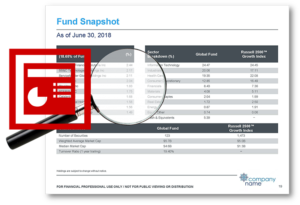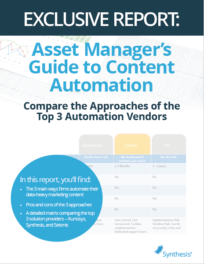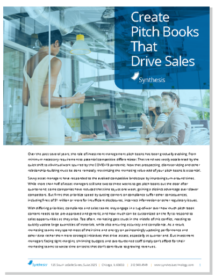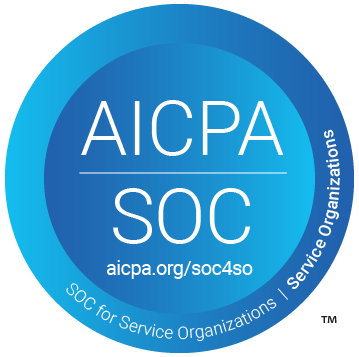New Opportunities for Hedge Funds: An Interview with Risk Advisors
In light of new regulatory requirements, hedge fund managers are facing many new challenges. Due to an increased level of scrutiny, it’s important for hedge funds to have a technology strategy that supports critical data management, marketing, and client communications functions. We recently sat down with two top authorities at Risk Advisors, Inc, to get their perspective on some of the current opportunities and challenges facing hedge fund managers today.
Q: Why is a strong data management strategy critical for Hedge Funds?
A: Since the financial crisis in 2008, hedge funds have been struck with a series of new regulation. This regulation requires hedge funds to provide detailed information that was not required prior to the crisis, both at the fund and manager level.
In the past, regulators required hedge funds and other private funds to provide information on investment holdings, strategies and fund performances. Now, a mountain of other risk-related data is required on a regular basis including information about counter-parties, leverage, asset type exposures, investor types, and liquidity of investments. And it may not stop there — the level of reporting requirements is only expected to increase.
While it is impossible to anticipate all of the requirements of future reporting regulations, we expect other jurisdictions and regulators to require information similar to the United States (i.e. Form PF and Form CPO-PQR) and the European Union (i.e. EU AIFMD).
As a result, the most important — and challenging — effort for hedge funds to make, is to invest in the technology and human capital required to manage and deliver high quality data. This data will serve as the source of enterprise-wide data and reporting requirements.
Increasingly, hedge funds are faced with unstructured data. This data is typically provided to the firm internally as a PDF or Excel spreadsheet or externally on a web page.
There are many software applications available in the marketplace that are designed to help firms integrate and scrub data from multiple data sources. However, most of them only work on structured data sets and find it difficult to incorporate unstructured data.
In addition to investing in data management technology, it is crucial for firms to commit to building a strong data quality culture. This can be done by dedicating resources as well as assigning ownership to acquire, validate and distribute accurate and consistent data across the firm.
Building a strong data management process utilizing both technology and a dedicated data governance team is not a small undertaking for hedge funds. However, this investment will ultimately provide them with much better access to information and analytics.
Q: What are the marketing opportunities and challenges that hedge funds face in the current environment?
A: Not surprisingly, hedge funds have faced a difficult marketing environment since the financial crisis of 2008. The Madoff scandal, coupled with the fact that many funds were forced to impose gates (curbs on an investors’ ability to redeem their investment), has seriously damaged the image and appeal of these products.
In the past two to three years, performance has been a major problem as demonstrated by most strategy-based indices.
More specifically, equity strategies have been forced to “compete” with an extended bull market while fixed income markets have been characterized by diminishing risk premiums, historically low rates and little-to-no volatility. As a result of the dramatic events of 2008-2009, investors have also tended to gravitate to the larger, established managers. This puts new funds and less well-known managers at a disadvantage.
After a three-year secular rally in equities, there is little reason to believe that stocks can continue to appreciate unabated. By the same token, most observers are anticipating a significant correction in the fixed income markets in the not-too-distant future.
While these factors promise to add greater uncertainty to the performance of financial markets, they argue strongly for active and professional portfolio management.
In short, the current financial markets make a strong case for active management. Under the mutual fund umbrella (a.k.a. “1940 Act Funds”), access to such active management has been extended to retail investors by regulations that ease limitations and permit the inclusion of Hedge Funds.
Although most managers will be compelled to modify their strategies (especially in terms of using leverage and shorting to meet requirements for marketing to the retail investor) an entirely new investor market has been opened to them.
To address this new opportunity, hedge fund marketers and investor relations teams will have to learn to service retail investors appropriately.
Q: Are there any silver linings to the current environment of increased regulatory and compliance costs and low performance returns for hedge funds?
A: The increased regulatory environment certainly poses many challenges to hedge funds. Often times, the team is maxed-out on their day-to-day responsibilities, yet still required to complete and file an increasing number of detailed and time-consuming reports for regulators. This creates distractions and takes managers away from their core investment activities.
In many instances, the questions require a whole new way of categorizing and aggregating data from traditional position and risk reporting. This requires involvement across all business units of the firm, not just IT.
However, these new data requirements imposed by regulators can be an opportunity for hedge funds to introduce a data governance framework across the organization, and allow it to become integrated into its normal operations. Keep in mind the amount of regulatory reporting is only expected to become more complex in the future.
Hedge funds that implement a well thought-out data management practice will have an easier filing process with fewer errors than firms that rely on a largely ad-hoc manual effort. They will also be in a better position to defend regulatory filings and pass a regulator’s examination. It’s also an opportunity to strengthen the fund’s internal risk management practice and utilize all the disparate sources of data in its investment process.
Laurie Yeh, Director – Risk Advisors
Laurie leads the Operational Risk and Compliance practice. She is experienced in delivering business process and technology solutions for financial institutions. Before joining Risk Advisors, she was with Gottex Fund Management, a Swiss based fund of hedge funds, where she managed the product enhancements to the fund’s portfolio analysis system. Prior to Gottex, she was at EXIS Consulting, a boutique capital markets trading systems and advisory firm, where she directed the delivery of client projects. Laurie holds an MBA from NYU Stern School of Business, and a BA from Cornell University.
Robert L. Wood Jr, Managing Director – Risk Advisors
Robert leads the Asset Allocation practice. Earlier in his career, Robert was a senior corporate and investment banker in Latin America with Chase Manhattan Bank and AIG. In the last twelve years, he has built a successful track record marketing Hedge Funds primarily in the United States and Brazil. Over his career, he has lived for extended periods of time in Brazil and has developed a special expertise on that country’s alternative investment industry. Robert holds an MA in International Relations from the Johns Hopkins’ School for Advanced International Studies, and received his BA from Duke University.








 Compare the Top 3 Finserv Content Automation Vendors [White paper]
Compare the Top 3 Finserv Content Automation Vendors [White paper] Create Pitchbooks the Drive Sales [White paper]
Create Pitchbooks the Drive Sales [White paper] Build vs. Buy: Should Your Financial Services Firm Outsource or Insource Marketing Technology? [White paper]
Build vs. Buy: Should Your Financial Services Firm Outsource or Insource Marketing Technology? [White paper]  10 Tips for Rebranding your Fund Marketing Documents [White paper]
10 Tips for Rebranding your Fund Marketing Documents [White paper]

